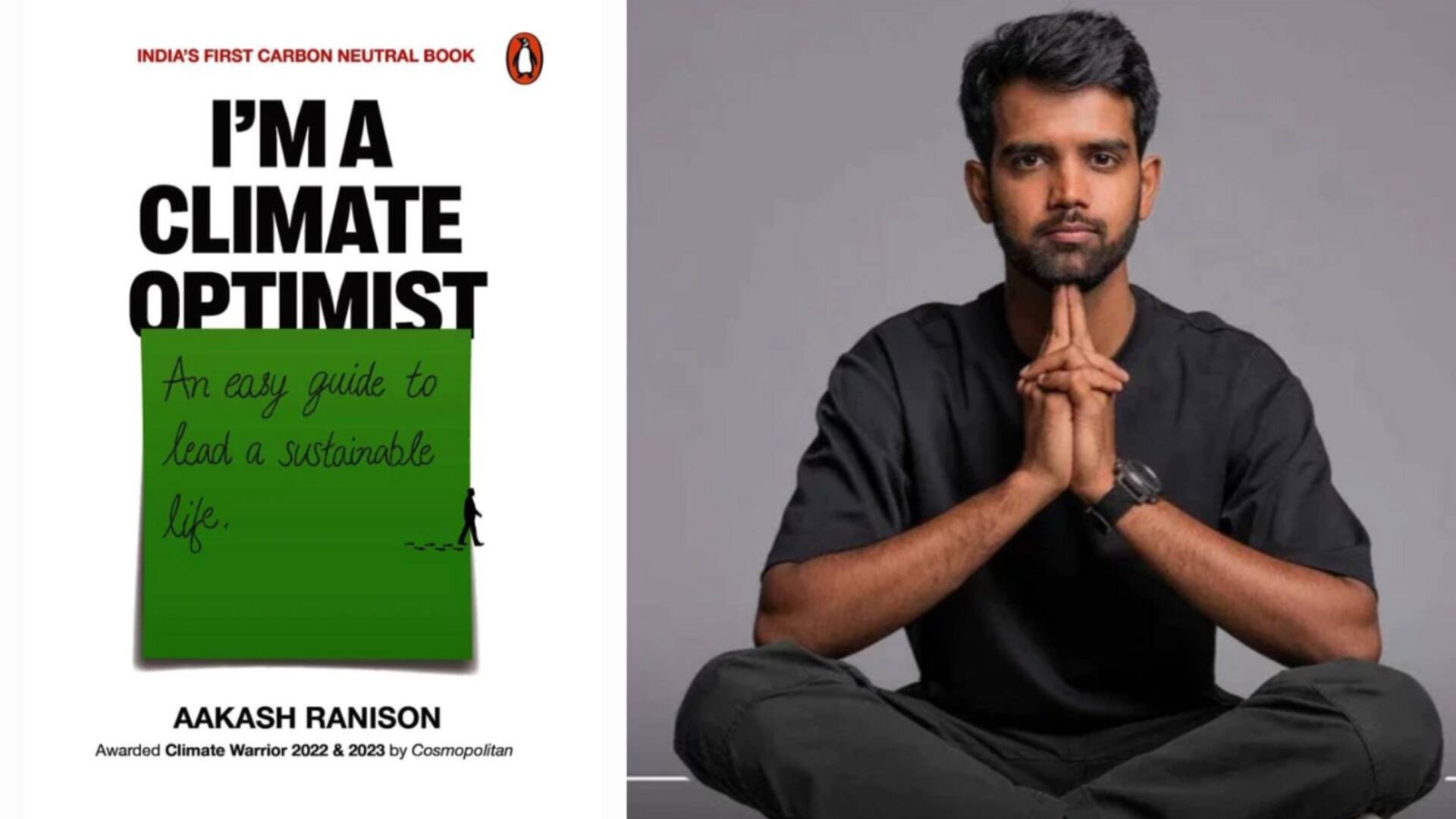
'I'm a Climate Optimist': Aiming for a more livable planet
What's the story
Climate change is a pressing global concern with rising temperatures, extreme weather events, and shrinking ice caps. But how can individuals contribute to mitigating its effects and preserving our planet? In a comprehensive review, I explore India's first carbon-neutral book I'm a Climate Optimist, which offers practical solutions for everyday life, covering areas like food, textiles, transportation, tourism, beauty, homes, education, business, and more.
Author
About the author: Aakash Ranison
Aakash Ranison is part of Forbes' India's Top 100 Digital Stars for 2022 and has earned titles like "Climate Warrior of the Year 2022" and "Sustainable Changemaker of the Year 2022." His has delivered five TEDx Talks and authored a book on climate change in 2020. Ranison leads a nomadic, minimalist life, traversing India by walking, cycling, and hitchhiking, sharing his message of sustainability.
Book
About the book: 'I'm a Climate Optimist'
Conversations about climate change often use technical jargon that eludes most people, hindering understanding. This book seeks to demystify climate change and sustainability, making it accessible to all and emphasizes the importance of individual action in aligning with the United Nations' Sustainable Development Goals. Published by Penguin Random India's Ebury imprint, it is printed on eco-friendly, FSC-certified paper using vegetable ink.
Problem-solving
Identifying problems and providing practical solutions
I'm a Climate Optimist by Aakash Ranison guides readers on how they can make an effort with inputs from various industry experts and businesses. Sharing data specific to India, he breaks down the products we consume from various industries and walks readers through the problem at hand and a way to find the solution. It ends with a message to stop greenwashing in India.
Usability
The book outshines peers in its genre
All chapters begin with activity pages to help you gauge your carbon footprint. There are graphs, pie charts, diagrams, and advice from industry experts to wrap up all the information and present a clear solution. Another interesting factor is how the author lists his sources of research at the end of every chapter. The book also aims to unite industry leaders to inspire sustainability.
Problem-solving
Sharing solutions listed in chapter 5 'Tourism'
Conscious travel solutions encompass opting for ecotourism, small-scale eco-accommodations, consuming locally sourced food, embracing slow travel, and participating in low-carbon activities such as trekking, kayaking, and cycling. The chapter cites a 2020 survey revealing that 68% of Indian luxury travelers were willing to pay extra for eco-friendly hotels during the pandemic. The chapter also promotes reusable travel kits and advises against disturbing natural environments.